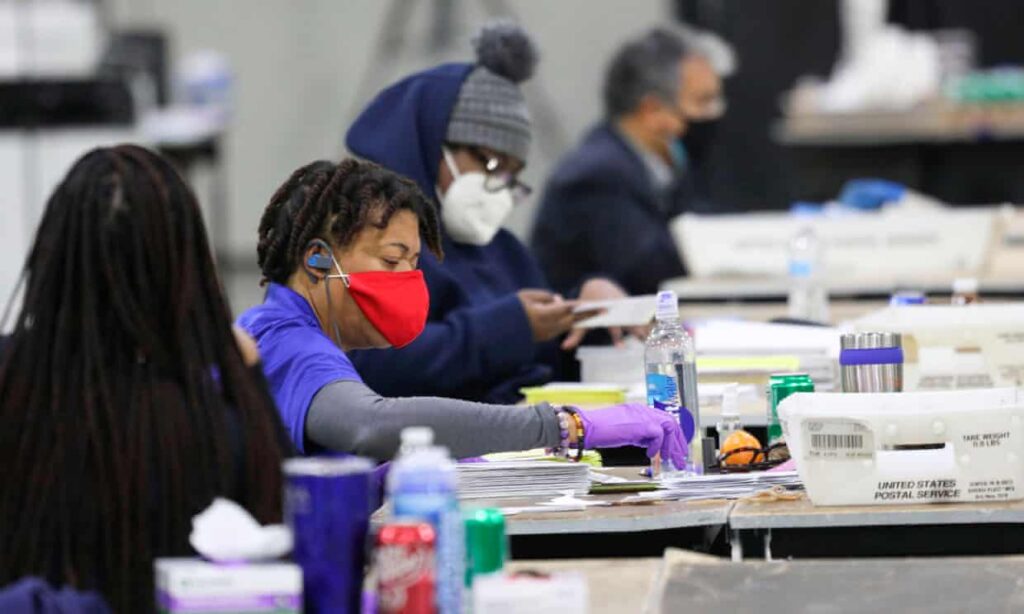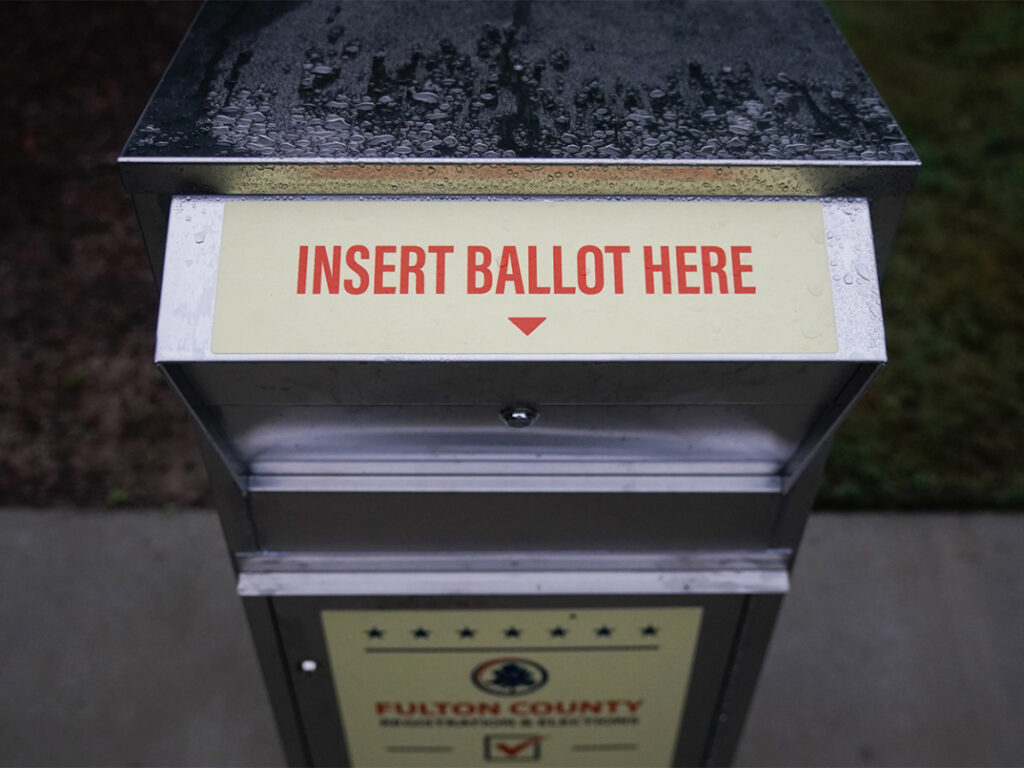
Photographer: Sandy Huffaker/AFP/Getty Images
On January 4, 2021, the For The People Act (H.R.1) was passed to ensure expanded voting access and privileges for all Americans during election cycles. This policy measure reduces the financial influences of money in politics and creates more sound ethics for public servants. There are built-in anti-corruption measures that strengthen American democracy and protect the American public from voter suppression.
USA Today reports that lawmakers in over 40 states have introduced voter suppression bills that would digress voting rights back to the days of the Civil Rights Movement. The bill, given the symbolic designation of H.R. 1 by House Speaker Nancy Pelosi (D-Calif.), serves as voter protection. H.R. 1 has additional significance due to an expanded freedom to vote, building upon the momentum of voter turnout from the 2020 election.
As of March 24, 2021, The Breanna Center for Justice reports that state “legislators have introduced 361 bills with restrictive provisions in 47 states. That’s 108 more than the 253 restrictive bills tallied as of February 19, 2021 — a 43 percent increase in little more than a month.” So far, five restrictive bills have been signed into law, at least 55 restrictive bills in 24 states are currently moving through legislatures, 29 have passed in at least one chamber and 26 have had some sort of committee action — such as a hearing, an amendment or a committee vote.
Examples of Bills Restricting Voting Access:
| BILL # | SUBJECT |
|---|---|
| AK HB 23 | Automatic voter registration |
| AK HB 66 | Voter ID |
| AK HB 96 | Absentee voting |
| AK SB 39 | Absentee voting; Automatic voter registration |
| AL HB 285 | Disability access |
| AL HB 314 | Purges |
| AL HB 396 | Absentee voting |
| AL HB 399 | Absentee voting; Voter ID |
| AL HB 538 | Absentee voting |
| AL SB 200 | Purges |
| AL SB 235 | Disability access |
| AL SB 29 | Purges |
| AR HB 1112 | Provisional ballots |
| AR HB 1244 | Voter ID |
| AR HB 1615 | Polling places |
| AR HB 1715 | Absentee ballots |
| AR SB 485 | Early voting |
| AZ HB 2358 | Purges |
| AZ HB 2369 | Absentee voting |
| AZ HB 2370 | Polling places |
Republican Rep. Barry Fleming said that Republicans “want their own changes” making accusations of “controversy regarding our election system.”
After losing a governor’s race in 2018, Democrat Stacey Abrams’ voter registration and election campaigns worked diligently to expand voter access to disenfranchised communities.
Senator Lindsey Graham expressed an urgent need to investigate mail-in voting because “if we don’t do something about voting by mail, we’re going to lose the ability to elect a Republican in this country,” as quoted in NPR.

Photographer: Elijah Nouvelage/Bloomberg via Getty Images
FiveThirtyEight reports two big bills under consideration in the state of Georgia. The first major bill, House Bill 531 was introduced by Rep. Barry Fleming (R-Harlem) directly into the Special Committee on Election Integrity an hour before its hearing was scheduled. This bill would require:
- Absentee voters to submit driver’s license number, state ID number or a copy of their photo ID along with their ballot.
- A move to shorten the timespan that voters have to request absentee ballots to 11 weeks before the election and two Fridays before the election. According to Georgia.gov, Georgians can request absentee ballots between 180 days before the election and one Friday prior to the election.
- Prohibits election officials from mailing absentee ballots until four weeks prior to the election.
- Restricts election officials from mailing unsolicited absentee-ballot applications to voters.
- Shortens early-voting period to business hours during the three weeks preceding the election, including the second Saturday before the election.
- Early voting would no longer be allowed any other day, including Sundays.
- Making it illegal to give food or water to people standing in line to vote. Republican Secretary of State Brad Raffensperger has argued that this is already against the law, and he has announced his intention to start enforcing it more, 11Alive reports.
- Ballot drop boxes at early-voting sites will only be available when those sites are open.
- Mobile voting facilities that service rule and disenfranchised communities, such as voting buses and pop-up stands will only be available during emergencies.
- All provisional ballots cast in the wrong precinct will be thrown out, even if they belong to a legally registered voter.
- Counties will be prohibited from accepting outside funding for elections.
According to GBP News, the Georgia state Senate also released the second major omnibus election bill, SB 241bill SB 241, that would:
- Require voters have an excuse to vote absentee — even though Georgia has offered no-excuse absentee voting without incident since 2005.
- Require a voter to show a driver’s license number or state ID number to apply for an absentee ballot on paper, this is already required to apply for one online.
- Require absentee voters to have their ballot envelope sealed with a witness signature, with a copy of their photo ID enclosed with the ballot.
- Empower the state leadership to remove local election officials from their posts.
- Limit the use of mobile voting facilities to the official use during emergencies.
